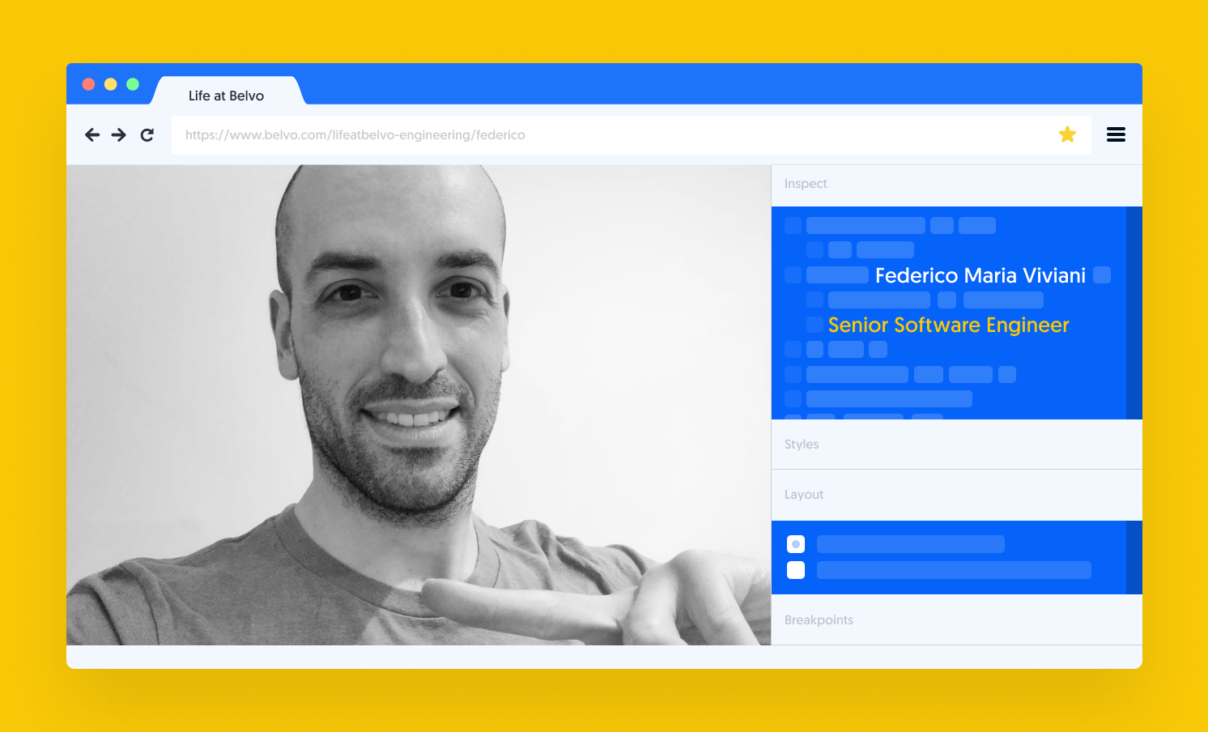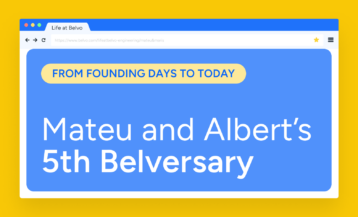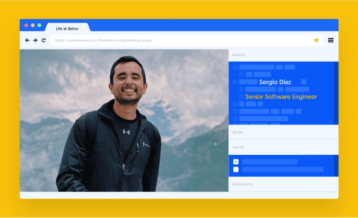Frontend might not be the first area that comes to one’s mind when thinking about an API product like Belvo. But its mission is critical to make sure our product provides the best developer experience.
One thing all great API companies have in common is their focus on self-service developer experience and their commitment to self-service tools and processes.
At Belvo, a big part of this challenge relies on the work of frontend engineers like Fede, who works as a Senior Software Engineer building the features that help developers integrate Belvo into their platforms.
Here, he shares with us what his daily routine looks like at Belvo and what are some of the challenges he enjoys the most.
1. What do you do at Belvo?
I’m a Senior Software Engineer in Belvo in the Onboarding Squad, where we shape developers’ tools for our customers to simplify and improve Belvo’s integration.
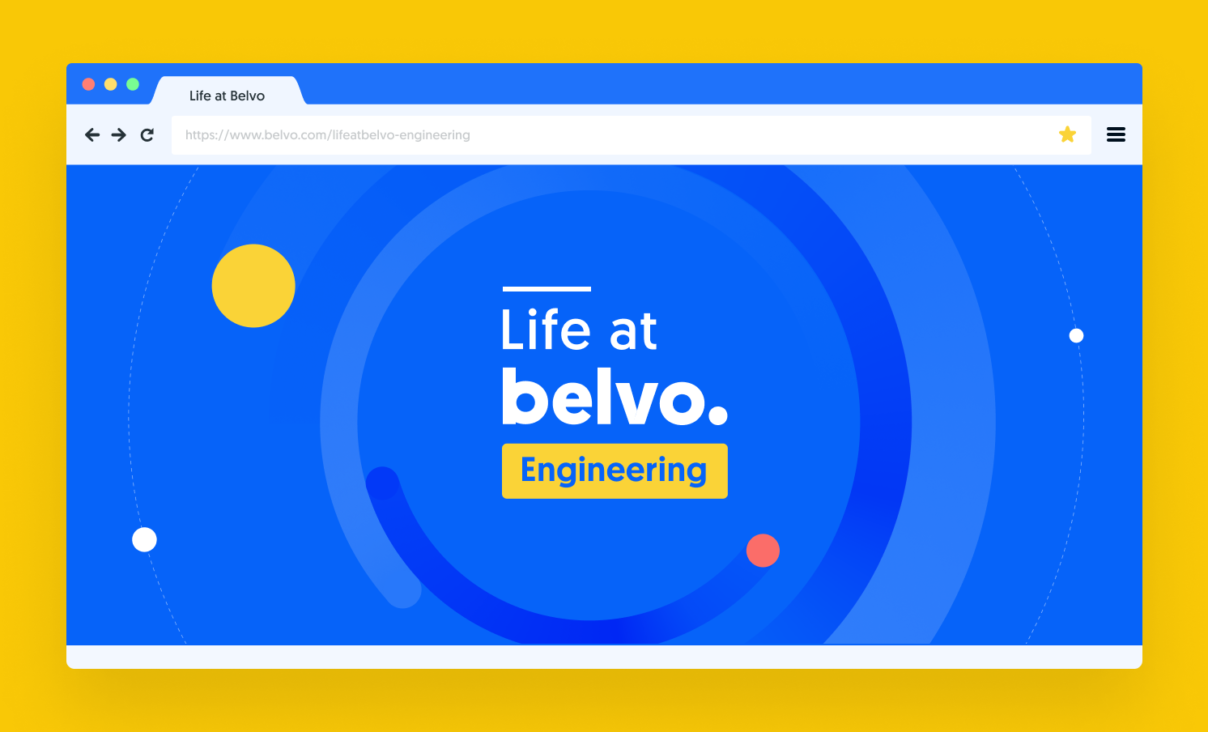
2. Can you describe your team’s mission and day-to-day responsibilities?
In the Onboarding team, we embraced the mission to build first-class tools to improve our customer’s process to go live with Belvo’s solution.
Among many features, we recently developed activity logs, which is one of the most used by customers. This feature helps developers debug their integration by consulting directly the logs of each API call and being able to filter them. We’ve also recently worked on Belvo’s self-service capabilities, which allow customers to select a product and be automatically billed monthly and which required us to create a completely new flow built by integrating an external service.
3. What is the tech stack that your team uses?
Since we have both Frontend and Backend our tech stack is a bit more diversified than usual, it’s composed of Javascript and Python as languages, Django and NuxtJs as Frameworks, and Kubernetes on top of AWS, ElasticSearch, Postgres for the infrastructure part, and CircleCI for the CI/CD.
More in detail, on the Frontend we are leveraging functional and visual testing thanks to Cypress and Percy.io and we also use Storybook as a playground/developer tool for our components library.
4. What are the tools that help you the most in your daily routine?
We make extensive use of both Notion and Slack to improve synchronous and asynchronous communication.
Specifically, Notion is the place to search for any process or information in the company, but given its potential, we just didn’t stop there and we are also using it to manage many of our team –or individual– tasks as documentation keeper and most of the time it acts as the main source of truth for any initiative we are tackling.
5. How is it working in your team as a frontend engineer?
The team meets every two weeks to review the backlog, prioritize their work and decide which tasks will be tackled. We also have a daily, where we focus on analyzing our metrics’ status and any blockers we may have faced on the current tasks. Every four weeks we do retrospectives.
A frontend feature lifetime consists of someone picking it up from the queue of pending tasks, analyzing the requirements, checking the design specs, and clarifying any possible doubts with Product Manager (PM) and/or Designer before starting working on it.
We develop it in a dedicated branch and once the changes are ready we deploy them in a QA environment to be checked by the team.
When it passes this step we submit the Pull Request (or Change Request if you prefer) to our peers and we address any issues it may arise.
Once approved, the code is merged in the main branch and deployed at the first release which is usually created along with the feature itself or in a separate moment, this is decided case by case.
Once the ticket is completed, the customer is hopefully happy and we are good to pick up the next one!
6. Where’s your team located and how do you sync with them?
My team is spread between Europe and Brazil. Most of the time we sync through Notion, Slack, or Jira, while we don’t say no to a simple call when needed or for a random talk.
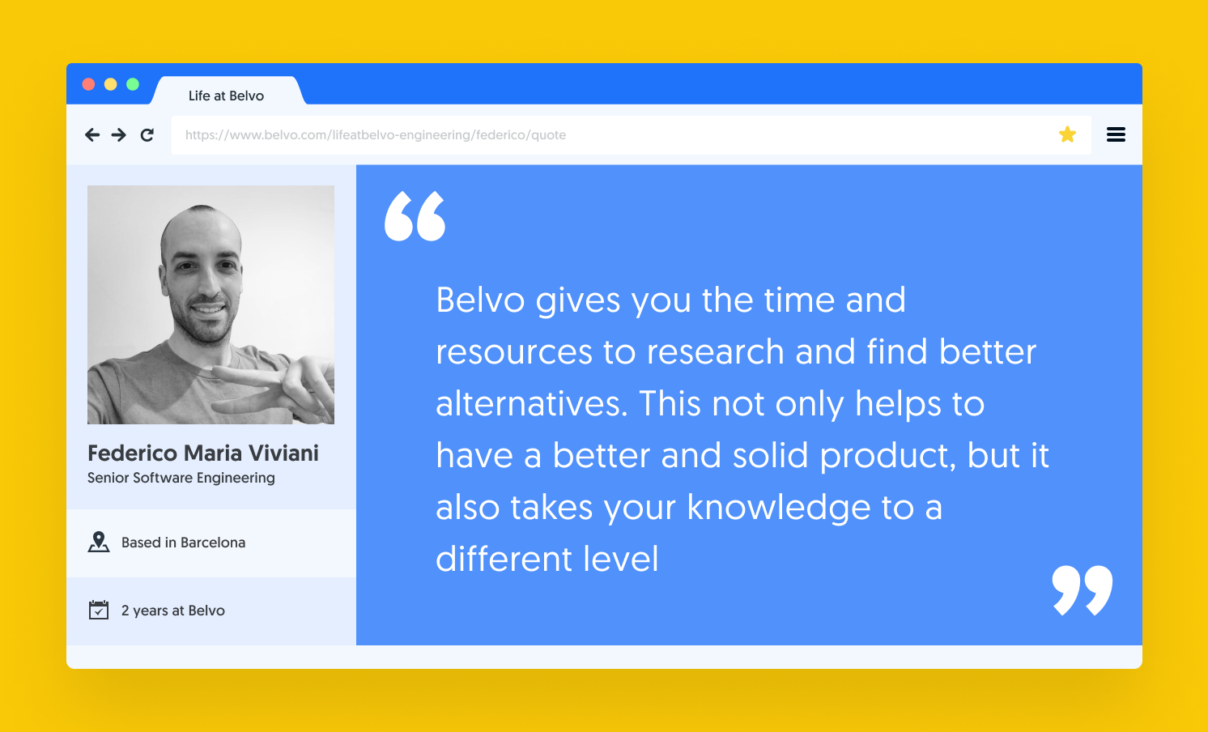
7. Have you done any in-person offsite? How do you bond with your team?
We did a company offsite at the beginning of this year where we met most of the team for the first time. More recently we also did a team building in Barcelona more focused on team bonding.
Both experiences were incredible, living days with your teammates you have only talked to through a camera is definitely exciting.
8. What is the company perk that you like the most?
The flexible working time! It enables me to live with more freedom. Going to the pool in the middle of the morning it’s awesome!
9. Where do you see yourself in three years?
While I love the challenges that an IC [individual contributor] role presents, I’m very attracted to the managerial ones as well, so that’s probably where I see myself in three years.
10. What do you enjoy the most about Belvo’s Engineering team’s culture and what would you tell to someone joining the team?
As an Engineer it’s common to find companies that are mainly focused on delivering features the fastest way possible, ignoring any impact those could have on the existing product. Belvo gives you the time and resources to investigate and find better alternatives. This, in my opinion, not only helps to have a better and solid product, but it also shapes your knowledge to a different level, which is extremely valuable and satisfying.
Our team has embraced this concept and made it our own giving each one of us the ownership of what we build and release.
Join the team!
We are hiring in different areas across Latin America! Check out our open positions.

